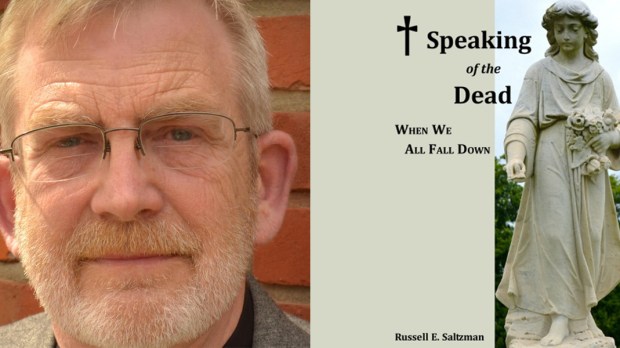Lenten Campaign 2025
This content is free of charge, as are all our articles.
Support us with a donation that is tax-deductible and enable us to continue to reach millions of readers.
Russell Saltzman is a former Lutheran pastor who entered into full communion with the Catholic church in 2016. He shared his story about it with Aleteia, here. While still a pastor, he wrote a fascinating and personal book, Speaking of the Dead: When We All Fall Down, which he discusses here, in a fast-take interview.
1) What inspired the book?
I was a Lutheran pastor, doing funerals. I wanted to pay tribute to some memorable people to whom I was pastor, their last pastor. The funerals are categorized — children, atheists, nice old ladies, others. But each includes a biography of the person, to the extent I knew it, and the funeral sermon as it was delivered. And each reflects my notion that every Christian life (even for the non-Christian) reveals to us something of the Gospel. That’s what I fish for in the death of the Christian, the proclamation of the Gospel as ordinary people lived it, sometimes in ways they never imagined. Also there are essays on death and dying; my distaste for the “death awareness movement,” and my opinion on what the funeral sermon should say, and what it should not. I had started on the book in 2010, and stalled. I was able to resume work only after the deaths of my parents.
2) If you could give this book another title, what would it be?
Walking quietly on graves.
3a) What person in this book do you most personally identify with?
All of them. These were people I knew well, to whom I carried communion as their pastor, and offered prayers and jokes and friendship. I tried to preach honest sermons, the calamity of death overcome with the promise of resurrection. But they each in some way touched me deeply.
3b) What story or anecdote (or piece of advice) in this book most personally resonated with you?
The section “Does God Kill Children: How Do We Understand Evil in the World?” A 22-hour-old baby, a 10-year-old child, and on. Grappling with these issues is painful.
4) Did writing this book teach you anything?
Death is a hard thing to look at. Christian pastors must not, cannot treat it as a “celebration of life,” just another phrase for denial. Death is the penalty for being human, our reality. And without saying that bluntly, we have no real opportunity to grasp the the equally blunt wonder of resurrection. We must be able to say “as in Adam all die, so in Christ shall all rise.”
5) If there is one person you want to reach with this book, who would that be?
This guy answered that better than me: When funeral sermons fail.
6) What is the ideal beverage to have in hand while reading your book?
Beer. Ideally paired with food and theology.

